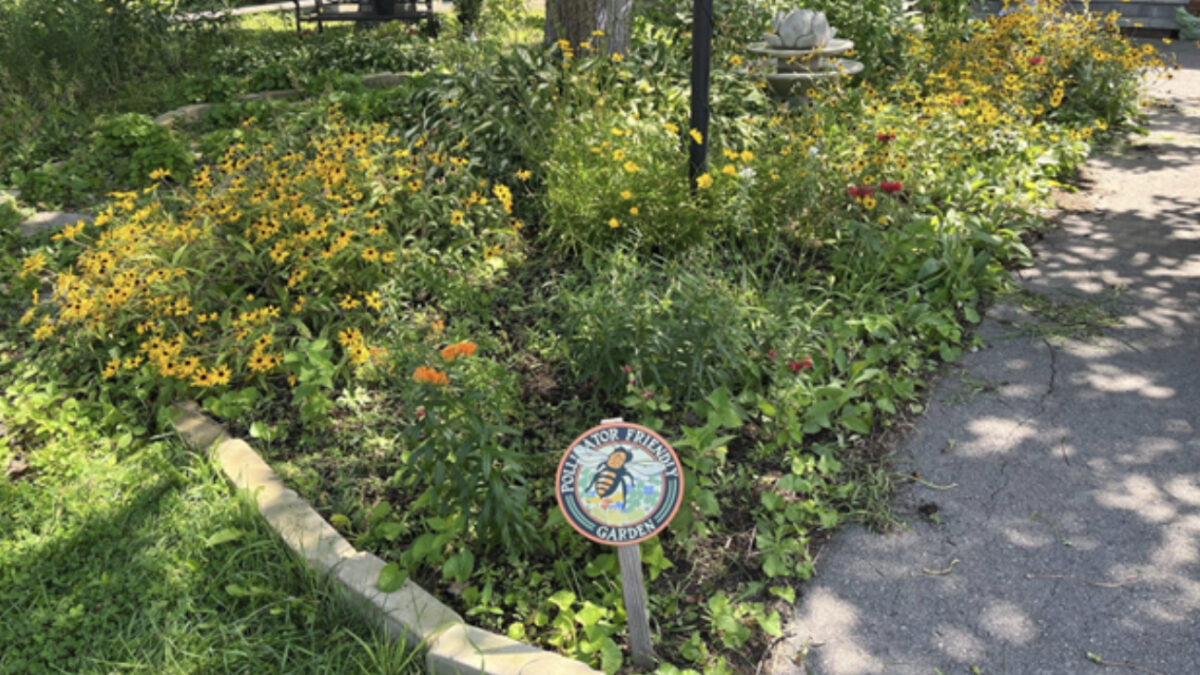Earth Day is right around the corner. And in conjunction with the April 22 celebration of our planet, Ecology Ottawa is hosting its second annual Eco Awards.
The not-for-profit, grassroots- and volunteer-based organization aims to educate local residents on environmental issues and promote environmental leadership.
Nominations closed on April 2. The award categories include “Climate Champion,” “Reduce-Refuse-Reduce-Reuse Champion,” “Land and Water Defender,” (awarded to an Indigenous nominee), and Youth Eco Champion. The awards will also highlight the city’s “most beloved urban bird species,” “most cherished greenspace” and other local delights of nature.
Pratigga Chowdhury, Ecology Ottawa’s communications and events organizer, said the group tends to focus more heavily on environmental issues and action plans, and doesn’t always do enough to highlight the positive, planet-protecting work of members of the community.
“We at times neglect to recognize and celebrate all the people that do really amazing work in the city,” Chowdhury said.
She added that the annual awards are a way to celebrate the people and natural spaces that inspire action within the city.
We at times neglect to recognize and celebrate all the people that do really amazing work in the city.
Pratigga Chowdhury, Ecology Ottawa
The Eco Awards ceremony is being held April 22 at the Mayfair Theatre near Bank Street and Sunnyside Avenue, along with a screening of the Indigenous-made film, The Condor and the Eagle.
Melanie Ouellette, founder and chair of the Ottawa Wildflower Seed Library, was one of last year’s winners of the Eco Awards under the “Active and Accessible City” category.
An avid gardener, she planted her first native seed in May 2020, and that October she started the seed library.
Ouellette began her gardening journey with the Spotted joe-pye weed, which she said was the beginning of her moving towards native plant gardening.
“Based on the wildlife I saw that it attracted, I kind of fell in love with that plant and kind of started this realization that I could do grassroot ecological restoration myself — and I didn’t have to wait for anybody else to do it,” Ouellette said.
Her organization provides free native seeds while also offering educational and outreach to teach people the importance of growing native wildflowers, trees and shrubs.
According to the East Multnomah Soil & Water Conservation District in Oregon, native plants are healthier for the environment as they don’t require pesticides, use less water, require less maintenance, and support pollinators and wildlife.
Chowdhury explained one of the aims of creating the Eco Awards was to bring attention to the type of Earth-friendly work people were doing in the city and share their stories to inspire others.
“So for me, I was kind of happy because it’s a way to show people that the seed library, even though we’re young — like we exist, we’re legitimate,” Ouellette said when recalling the honour she received last year.
A similar program at the national level — the Nature Inspiration Awards — is organized annually by the Canadian Museum of Nature.
I think those stories are very powerful. And they show people that even a small action can grow into something that can have a very important community or provincial or national impact.
— Kasia Majewski, Canadian Museum of Nature
Kasia Majewski, director of visitor experience for the museum, said these awards are also meant to highlight the conservation efforts of groups and individuals and to inspire others to get involved.
“I think those stories are very powerful. And they show people that even a small action can grow into something that can have a very important community or provincial or national impact,” Majewski said.
The Nature Inspiration Awards celebrate those who create links to nature and help with its preservation through specific projects.
“It’s not just us, it’s people in communities all across Canada,” said Majewski. “And so we really wanted to shine a light on the great work of Canadians across the country.”
With climate change a growing worry, Chowdhury said Ecology Ottawa is trying to also “defeat climate doomerism.”
That’s a daunting task. For example, Natural Resources Canada says that by last September some 6,132 fires had burned 16.5 million hectares across the country, an area larger than Greece. Last year’s wildfires also forced 200,000 Canadians to evacuate, according to the website Climate Refugees. And this year, the country faces a similar prospect because of expected dry hot weather.
That grim story makes the positive news the awards bring even more important, Chowdhury said.
“I think these positive stories of people really taking action and sort of taking control of the situation to the best of their ability and fighting … their fight is something that we really want to highlight and share.”




